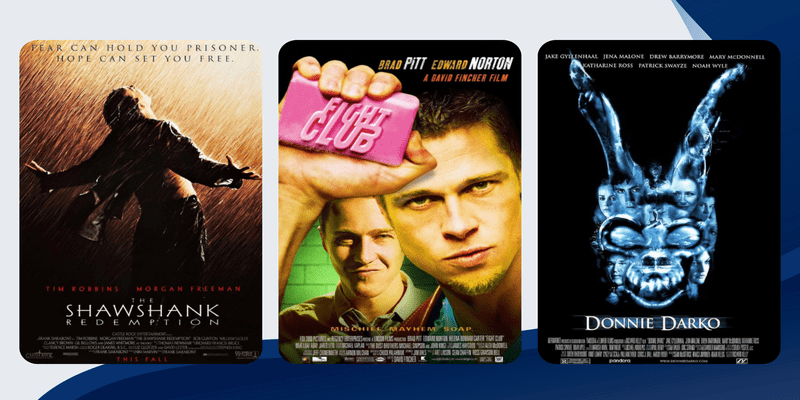Where to draw the line as friends?

Friendships are an integral part of our lives. Friends are our chosen family. We choose who we want to be with, who we would like to have in our lives, and who we would like to surround ourselves with… choosing these people is an important decision. We start forming these decisions and making these choices from childhood and as we grow, we change as people and then figure out who we actually consider our “friends”. Having friends who support you, love you, protect you, and are there for you is a blessing but at the same time, it is also imperative to draw the line.
The question here is: what is this line and where to draw a line? As friendships grow closer, conflict becomes difficult to avoid. This is often a good thing because you can’t fully know someone until you ignite each other’s fire. You won’t know if the connection has legs until it has been tested by conflict. And when it is, there is a choice to be made. Walk away in disgust, or walk towards it in an effort to deepen your connection. Conflict isn’t the adversary of connection. Fear of confrontation is. Having said that, it is important for us to identify, understand, and know what our boundaries are in any relationship. It does not have to be limited just to friendships. Boundaries help us determine ourselves and how we allow people to be around us. Intimate relationships require you to have set boundaries to ensure a healthy, sometimes, awkward and uncomfortable, connection to run.
When we talk about drawing a line, it is important to understand that we co-create our relationships. If we want our relationships to be satisfying, we have to push ourselves to confront and do what we weren’t able to as children. We have to push for more. We have to trust that our needs are valid. We must invest to positively impact our relationships with our voice and behaviour. This is a story not just about friendships but also our self-esteem, self- worth, and sense of power. Since we get to choose the people we allow to be a part of our lives, it is said, do not choose people who are unsupportive and judgmental. What really matters at the end of the day is that we seek relationships that make us feel safe, make us feel whole, and don’t leave us questioning our equation with our partner.
When someone in your life is unsupportive or judgmental, it is your moral right to disengage and disconnect with that individual. This will not only help you restore power and control over yourself but will also act as a personal boundary that will protect you from losing your identity. As mentioned earlier, all relationships are co-created. They are based on a dynamic of mutuality and reciprocity. That doesn’t mean 50-50. It means we play a central role in the negotiation and creation of the structures, conditions, and parameters that define satisfaction.
Todd Bratz, a popular sex therapist, made an observation that this power that we have is why we must take the responsibility for the role we play, if we want fulfilling friendships, we have to interact in ways that will elicit the responses we seek. That includes pursuing people that have the capacity to fulfil our needs and knowing when it’s time to shift gears, end, grieve and seek new friendships. Often, we believe that friendships are unconditional, they don’t have an expiry date. But the harsh reality is that sometimes they do. You cannot be friends with people who have different values or who think exactly the opposite of what you think, or what you believe in. From being a child, we transform into mature adults with values, beliefs, structures and patterns, and in this process of growing and transforming, we shed our skin and grow new skin — we outgrow people and friends. It is a normal part of our lives.
Staying in relationships that don’t serve the same purpose they did when they initially began, is basically not letting yourself grow. By being stuck with the same people who don’t share the same purpose as you, you are actually betraying yourself. Yes, the entire idea of outgrowing friendships sounds weird and absurd, but it is true.
Friendships are conditional
We as adults cannot expect unconditional love. We cannot expect our friendships to fulfil all our needs. They can’t know everything we need or want. It is impossible to do so. It does not matter how obvious you may think you are, you must directly communicate what you seek. Expecting your friends to change is another red flag as to why a friendship might come to an end.
Renowned author Nedra Glover Tawwab, in her book “Set Boundaries, Find Peace”, talks about the list of things one should not do in friendship.
Here’s a look at some of them:
Sharing everything with everyone
We have different types of friends. Some friendships are vulnerable in nature where you share deep secrets, embarrassments, ups and downs. Then there are friendships where you socially interact and have a great time. The last type of friendship is actually just acquaintanceship where you casually know each other. Having all three types of friendships is important. You cannot be sharing all details with every friend.
Comparing one friend to another
Every friend is different and brings their own sets of characteristics and personalities to the table. Comparing two people not only reflects badly on you but also makes the friends question themselves.
Trying to solve every problem
Who said that we need to solve all our problems and then take up the onus of solving other people’s problems as well? Sometimes, all one needs is a shoulder to cry on or for someone to just hear them out. Not every problem requires a solution — some require you to be a friend.
“We learn how to be better friends by understanding what has and hasn’t worked, observing other relationships, and treating people according to their needs. Friendships can be long lasting or short flings based on moments in life. Either way, we thrive from the connections we have with others,” shares Tawwab.
The ball has always been in our court when it comes to fostering our friendships. We have a choice to make — to choose our friends with all their flaws and understand their needs. Sometimes, we fail and that is okay. To be able to work on ourselves each day to be a better friend, reciprocate better, respond better, and be there for them… that is how we foster long-lasting friendships. There’s another option to let go of the bond. Before making that choice, ask yourself these questions to evaluate your friendship with that person:
Do you have a friendship that would benefit from clearer boundaries? Do you owe an apology to a friend? What does friendship feel like when it’s great and with whom? To whom do you owe that one text/call? Has a friend recently broken up with you? Have you ever broken up with a friend?
As our basic needs keep evolving — favourite food, preferred side of the bed, shampoo, need to earn more, need to settle down — it is important to evaluate our friendships from time to time. We need to seek and understand whether a particular friendship serves any purpose or is it just old baggage.
Longevity
Being together for years, knowing deep secrets about your friend, being there in ups and downs… all these help in measuring one’s friendship but these are not the “only” tools. You form your own sources and they keep changing with time. So, constant evaluation is also important.
Remember that friendship is a two-way street. Both parties are supposed to fill the relationship with effort, love, care, support, rationality, conflicts, and logic — only then it is a fruitful relationship. Look out for the red and green flags in friendships. They are not just limited to family or romantic relationships. As said before, being friends with someone is a choice that we make — we choose who we want to have in our lives. Thereby, it is important to make the right choice. You will make mistakes but then again, it is a part of who you are. It is through these choices, you’ll understand yourself better and so would your peers.






